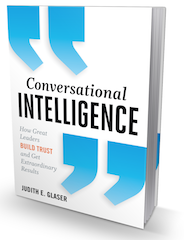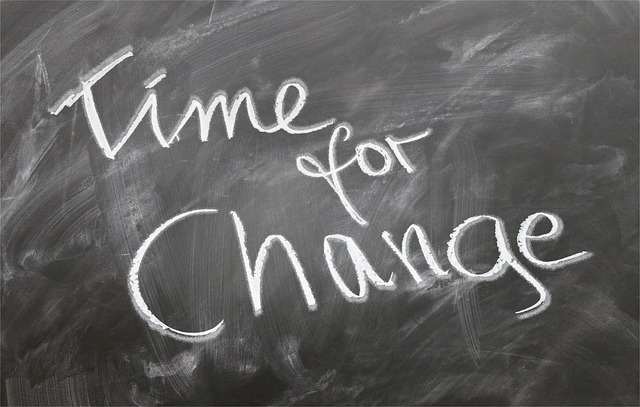
You Can’t Fight Human Nature
You Can’t Fight Human Nature https://csuiteold.c-suitenetwork.com/wp-content/uploads/2015/08/Cage_Fight_Series_Kaefig.jpg 493 281 C-Suite Network https://csuiteold.c-suitenetwork.com/wp-content/uploads/2015/08/Cage_Fight_Series_Kaefig.jpgby Dan Gregory & Kieran Flanagan

Mayweather. The fight we were always going to watch.
Tongues have been working overtime in recent weeks as pundits try to guess at just how much Floyd Mayweather made from his latest bout against Manny Pacquio.
While the final figure is yet to be known, Mayweather recently told a US radio station the fight could have generated as much as 700 million dollars, of which he receives 60 percent. Now given the bout went the full 12 rounds, this means Mayweather could have been raking in about $12 million dollars a minute.
The final staggering amount of monetary gain is not yet known, but it is definitely the biggest payday (or indeed year) in sport for a single person in history. This number surprises a lot of people. Not because Mayweather is not a man of talent, but rather this surprise stems from his less than pristine personal reputation.
It is widely known that Mayweather is not the pin-up boy for good. Five women have accused him of domestic violence, and he has served prison time more than once. Yet here he is making more money than Tiger Woods, Michael Jordan or any other athlete has made in a year, let alone a day.
Naturally there was the predictable outcry before the bout and the public was asked to boycott the fight, and yet people did not. Instead they paid to watch in numbers that exceeded expectations. All around the world people stood and applauded every punch and blow.
Why? How is it that despite a reputation that one might reasonably expect to hamper his success, the Floyd Mayweather fight not only succeeded, he did so in spectacular fashion.
The answer lies in delving deeper into human behavior.
While we like to think of human nature as being defined by our higher values—selflessness, courage and blinding intelligence—the truth is that most of the time we are anything but.
Rather we are selfish, scared and stupid. Now initially, this description does tend to generate offence, but in fact, these three traits have proven to be more than useful in our species and they are the reason we not only survived but also thrived as a species.
Selfishness meant we looked out for our own and in doing so ensured our survival, being scared meant we laid low in times of danger and stupidity drove us to look for the easiest and least challenging ways to achieve the things we needed to.
These characteristics are wired in to our survival brain and still unconsciously drive us today.
If we look to understand them better we can also understand why we couldn’t look away when Mayweather stepped into the ring. Here is how our selfish, scared and stupid bias drives everything we do:
Think Selfish.
What’s in it for them is perhaps the most important question we can ask when it comes to understanding why people do what they do.
We tend to filter the world primarily through a lens of what’s in it for us. Sure he might not be a role model but he can certainly fight and a great number of people love watching a good boxing match so why should they miss out? After all, he did not hurt them personally or anyone they were connected to?
Some people find this human tendency a little hard to take and point out that many people do in fact care. And of course they’re right, we do. Yet even kindest and most selfless among can be drive by our more selfish drivers (even if this is largely unconscious).
We are all fundamentally driven by some measure of reward, or recognition and the unspoken mantra, “What’s in it for me?”
When we delve a little deeper we quickly learn that we are getting all kinds of ‘selfish gain’ from what we might consider ‘selfless’ behavior. Things like social status, a sense of self or moral worth, the chance to feel like a hero, to feel good about themselves, to have others think we’re good people or even insurance for later in life (or in the next depending on your religious persuasion).
Selflessness, it turns out, can be driven by selfishness – just served up with a heaped helping of self-righteousness into the bargain.
For people watching the Mayweather fight, there was a lot in it for them (enough to outweigh any negatives). The spectacle, the controversy, being part of something built up to feel significant and of course sharing the experience with millions of others all played a part in the fight’s success.
Think Scared.
Stories and legends may speak of the hero on a quest bravely facing the unknown but in reality most of the time we are anything but fearless.
In fact one of the biggest fears that motivates us is isolation, or being ostracized. Partly because being separated from our clan meant that we were more likely to be eaten or maimed back in the days when predators roamed free, but also because we are social creatures also who crave connection and long to fit in.
Connection, it turns out, is more than a want – it is a need. Too much alone time can actually be bad for your health. A 2010 AARP study of the isolated elderly in the US found that isolation was as bad for people as smoking 15 cigarettes a day.
So how does this connect to the Mayweather fight? The desire to fit in, to be included, and to be able to join in conversation was a real driver in people tuning in en masse (regardless of their personal opinions of the man). People did not want to miss out.
Fear of missing out even has an acronym for the more youthfully inclined. FOMO.
For many people, FOMO was definitely a key driver for tuning in to the bout. It was an occasion, a place to be seen, and an event not to be missed. The boxing ring became a red carpet affair and rumors even suggest that the Las Vegas airport was closed to private jets due to no more parking space being available.
In short, people were afraid of not seeing the biggest fight in recent history.
Think Stupid.
In other words, how do you make it hard not too?
It was virtually impossible not to know the fight was happening given the controversial nature of Mayweather himself, the ten-year build-up to the bout and the media coverage. And the media distribution made it difficult to avoid. Not only was it easy to get involved, it proved difficult not to be, and this is key to its success.
Making things easy to engage with is critical. Yet so often in life and in business we tend not to engineer our ideas that way. We add layers of complexity, we unintentionally build in friction and we put superfluous steps in the way.
If we want people to connect, to change behavior or do be moved to support our cause we need to make signing up, joining in and participating as easy as possible.
That is the genius of Thinking Stupid.
At the end of the day it is about being honest about what makes us do the things we do and swimming with the current of human nature. If we’re honest about what really drives us at a very fundamental level, we begin to understand that despite Mayweather’s questionable out of the ring persona and any personal misgivings we might have about the sport itself, the hardest fight is taking on human nature.
 Dan Gregory & Kieran Flanagan are behavioral researchers and strategists, specializing in behaviors and belief systems–what drives, motivates and influences us. They have won business awards around the world for Innovation, Creativity and ROI working with such organizations as Coca-Cola, Unilever, News Corp and the United Nations in Singapore. They are passionate advocates for the commercial power of creativity and a return to more human engagement, cultures and leadership. Published by WILEY, Kieran and Dan’s new book Selfish, Scared & Stupid is available from The Impossible Institute. They can be followed on Twitter @DanGregoryTII and @KieranFTII.
Dan Gregory & Kieran Flanagan are behavioral researchers and strategists, specializing in behaviors and belief systems–what drives, motivates and influences us. They have won business awards around the world for Innovation, Creativity and ROI working with such organizations as Coca-Cola, Unilever, News Corp and the United Nations in Singapore. They are passionate advocates for the commercial power of creativity and a return to more human engagement, cultures and leadership. Published by WILEY, Kieran and Dan’s new book Selfish, Scared & Stupid is available from The Impossible Institute. They can be followed on Twitter @DanGregoryTII and @KieranFTII.




